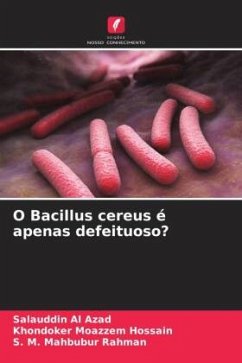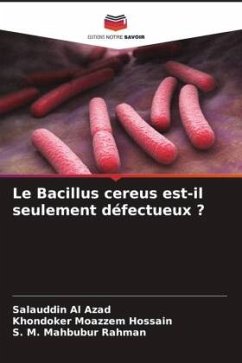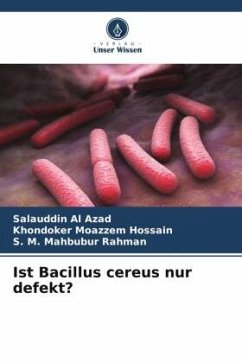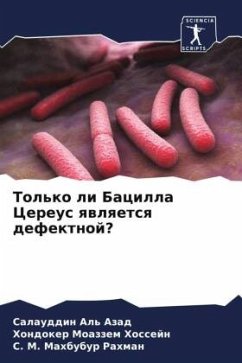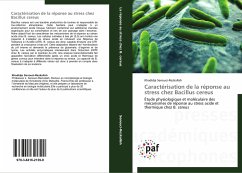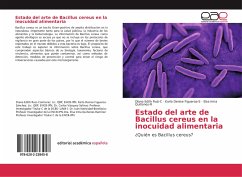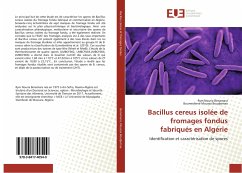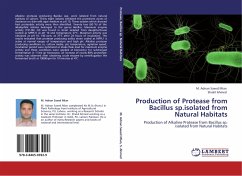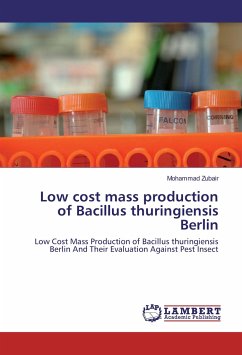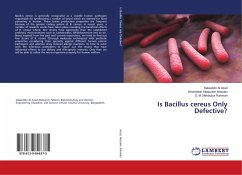
Is Bacillus cereus Only Defective?
Versandkostenfrei!
Versandfertig in 6-10 Tagen
27,99 €
inkl. MwSt.

PAYBACK Punkte
14 °P sammeln!
Bacillus cereus is generally recognized as a volatile human pathogen responsible for synthesizing a number of toxins which are claimed for food poisoning in human. These toxins production properties are frequent because of the genetic coding system of B. cereus. In recent years, a number of research works have taken place revealing the beneficial effects of B. cereus where, few strains have superiority than the established probiotic micro-oranisms such as Lactobacillus, Bifidobacterium and so on. Being inspired from the past and current researchers, we tried to find out few strains of B. cereu...
Bacillus cereus is generally recognized as a volatile human pathogen responsible for synthesizing a number of toxins which are claimed for food poisoning in human. These toxins production properties are frequent because of the genetic coding system of B. cereus. In recent years, a number of research works have taken place revealing the beneficial effects of B. cereus where, few strains have superiority than the established probiotic micro-oranisms such as Lactobacillus, Bifidobacterium and so on. Being inspired from the past and current researchers, we tried to find out few strains of B. cereus (through molecular techniques) with probiotic properties considering their specialty against different human enteric pathogens and selective drug induced allergic reactions. Its time to work with the infectious pathogens to figure out the strains that have influential effects to our dietary and therapeutic interests. Only then we will be able to utilize the micro-organisms properly for human welfare.



